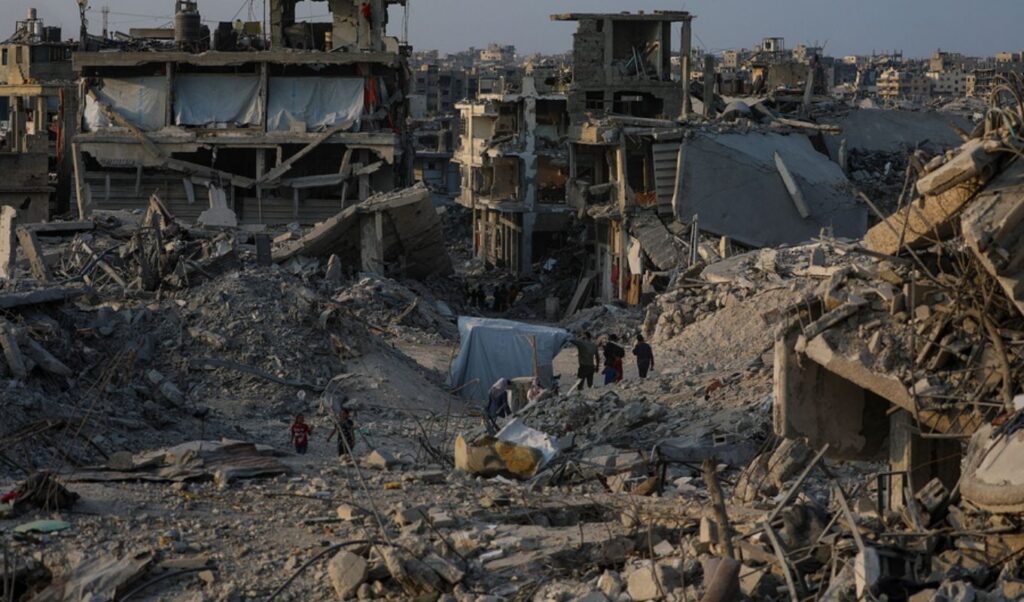Hamas appears to be strengthening its control in the Gaza Strip from regulating prices of basic goods to taxing products like cigarettes, while US plans for the enclave’s future are beginning to take shape. Despite the organization’s previous commitments, this stance reinforces assessments that Hamas does not intend to relinquish power. Following the ceasefire implementation on October 10, Hamas quickly regained control of areas from which Israeli forces withdrew. According to sources, it executed dozens of Palestinians accused of collaborating with Israel or committing crimes, while the international community demands its disarmament and withdrawal from governance. However, no agreement has yet been reached on who would replace it. Gaza residents report feeling Hamas’s control increasingly in their daily lives. Specifically, the organization’s authorities oversee product imports, impose taxes on goods like oil and cigarettes, and fine merchants who overcharge. The testimonies come from ten Gaza residents, including three merchants with direct knowledge of the situation. For his part, Ismail Al-Thawabta, head of the Hamas government’s press office, denies that taxes are imposed on cigarettes and fuel, characterizing the related accusations as inaccurate.
International community stalls as Hamas strengthens
It’s worth noting that Al-Thawabta maintains that authorities perform humanitarian and administrative missions and work to control prices. Moreover, he reiterated that Hamas is ready to hand over governance to a “new technocratic administration,” seeking smooth transition and avoiding chaos in Gaza.
Merchant Hatem Abu Dalal reports that prices remain high due to limited imports. Government representatives, he says, try to impose order in the market through inspections and price setting.
“It’s like a stock market. Prices are high, there’s no income, and conditions are difficult,” describes resident Mohammad Khalifa.
According to Reuters reporting, Trump’s plan for forming a transitional authority and multinational security force remains stagnant. The prospect of Gaza Strip division is strengthening, as Israeli forces control over half the territory and the next phases of the peace plan are not progressing.
It’s worth noting that almost the entire Gaza population lives in areas under Hamas control, which seized administration of the enclave from Palestinian Authority President Mahmoud Abbas and the Fatah movement in 2007. Analyst Ghaith al-Omari of the Washington Institute emphasizes that the organization seeks to show it cannot be bypassed. “The more the international community delays, the more Hamas will consolidate,” he notes.
The American stance
Asked about residents’ testimonies regarding Hamas activities, a State Department spokesperson declared: “This is why Hamas cannot and will not govern Gaza.” According to the same source, a new government can be formed once Trump’s plan is approved by the UN, adding that progress has been made toward forming a multinational security force.
Meanwhile, the Palestinian Authority is pressing to participate in the new administration, while Israel rejects the possibility of its return to Gaza governance. Fatah spokesperson Munther al-Hayek estimates that Hamas’s moves “constitute a clear indication that it wants to continue governing.”
It’s noted that in areas under Israeli military control, other Palestinian organizations attempt to gain influence as a counterweight to Hamas. At the same time, residents continue to live under extremely difficult conditions, despite increased humanitarian aid following the ceasefire.
Economic control
Hamas authorities “see and record everything,” although there is no generalized taxation, confirms a major food importer. They control product transportation, stop trucks, and interrogate drivers. Fines on profiteering merchants contribute to some price stabilization, though prices remain very high.
The Hamas government before the war employed approximately 50,000 people, including police officers. As Al-Thawabta reports, thousands have been killed while those remaining declare readiness to continue under a new government.
During the war, the organization continued paying salaries, though reducing the highest compensation levels to 1,500 shekels (approximately $470) monthly. Sources report it used reserves for payments, while having already replaced local officials and political bureau members who were killed.
Finally, activist Mustafa Ibrahim estimates that Hamas is exploiting delays in implementing Trump’s plan to further consolidate its influence. “It will be allowed to continue doing the same until an alternative government is put in place,” he notes.




